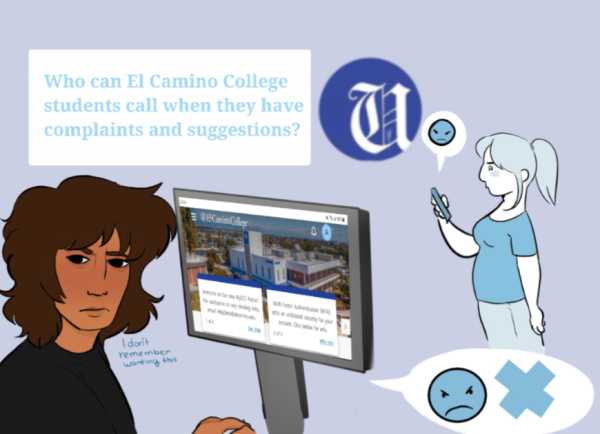Students should consider community college before university
Community colleges provide a more accessible path to higher education than most universities because of financial aid options available, transfer agreements, academic flexibility and affordability.
Choosing a pathway to higher education entails more than deciding which college to attend, prospective students should also weigh the advantages and disadvantages between community colleges and universities.
Community colleges allow students to have more flexibility in their daily lives, including the chance to save more money. The greatest cost-cutting advantage of choosing a community college over a four-year university is the tuition.
The average cost of attending a community college in your home state is $3,347, compared to the cost of tuition at a typical public university, which is $9,137.
On June 6, El Camino College announced that summer and fall 2022 courses will be tuition-free for El Camino College students that meet certain eligibility requirements. This is an initiative that will further help both current and prospective college students with alleviating their financial burdens.
College can also be an exciting and crucial time in a student’s life where many lessons such as becoming self-sufficient with things like time and money come into play.
Financial aid can play a role in helping students save money. When paying for your education, tuition isn’t the only cost of community college. Students may need to take time off work to complete their degrees, which means they may be unable to earn enough money to support their living expenses.
Federal need-based aid is based on a family’s demonstrated ability to pay for college, as established by programs such as Free Application for Federal Student Aid or FAFSA.
While money is crucial to going to school, your experiences with your classes and subjects are what inspire you to pursue your interests and careers.
Compared to the first two years of university, community colleges have substantially smaller courses. Community Colleges have lower student-to-professors ratios, giving students the opportunity to have more one-on-one time with professors.
Community colleges can also provide you with various advantages that make them an excellent choice for anyone looking to begin or continue their education.
Academic assistance services, such as include note-taking classes, peer tutoring, textbook recording, testing accommodations and educational equipment loans can give students a chance to become more successful.
Going right into a university can bring a lot of pressure on students coming right out of high school or returning students years after they leave.
By joining a community college first, students are given the ability to have a flexible class schedule, more professor-student interaction and save more money for their future.
Community colleges exist in diverse forms and sizes around the country, with a wide range of curriculum options, resources and opportunities for individuals to grow both their talents and their personal lives.












